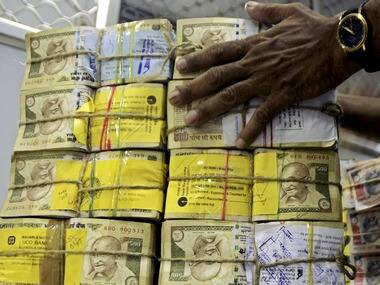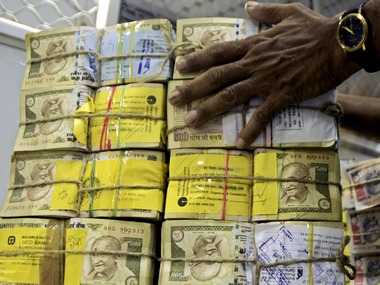Rajas Kelkar and Sanjit Oberai
Indian companies are in a better position to handle the tough business environment due to an improvement in their balance sheets.
Leading Indian companies are sitting on a pile of cash that could see them through some tough next few quarters. Analysts and bankers believe that companies are likely to scale down capital expenditure and keep their borrowing to the minimum during the current financial year.
[caption id=“attachment_69426” align=“alignleft” width=“380” caption=“Many companies are relying on their balance sheet strength to pay for any potential expenditure ahead of borrowing. Reuters”]
 [/caption]
[/caption]
Firstpost did an analysis of the BSE 500 companies to find out the cash and bank balance of the companies that have announced their results for the year ended March 2011. Banks have been excluded from our analysis.
Our analysis led us to a list of around 120 companies that have a positive net cash balance, of which 45 have cash in excess of Rs 500 crore. The total cash amount logged a 34 percent jump at Rs1.77 lakh crore (approximately $39 billion) for the year ended March 2011. The idea behind this analysis is to showcase a list of cash-rich companies that can increase their market share by taking advantage of the slowdown through the merger and acquisition route. Additionally, these companies could also pay out dividends.
The tough business environment has created pressure on the revenue front for some flagship sectors like IT services. The BSE IT sector index fell 18.5% over the past one month. The cash pile of software services companies, currently close to Rs 35,000 crore (Infosys, Wipro, TCS), would help companies deploy the necessary capital needed to generate high revenue, according to analysts.
Impact Shorts
More ShortsInvestment bankers also expect these companies to look for niche acquisitions. “We do not expect IT services companies to use up their surplus cash for large-sized acquisitions,” said an investment banker. “So far, they have used it judiciously and they may continue to look for niche targets that bring in competencies that they do not possess.”
Many other companies are relying on their balance sheet strength to pay for any potential expenditure ahead of borrowing. The investor banker pointed out that companies would conserve cash at this point of time. A survey of over 300 companies by investment bank Morgan Stanley reveals that the availability of capital has worsened in the last six months.
Total loans - secured and unsecured - for the year ended March 2010-11 stood at Rs 8,69,000 crore growing by 26 percent. Of this, secured loans had grown 27.6 percent while unsecured loans were up 23 percent.
Despite the surge in revenue, the average debt-equity ratio has fallen from the previous survey Morgan Stanley conducted - from 0.9 to 0.75. This means companies have been able to manage their liabilities better.
This puts the companies in a better position. The stock market has rewarded companies that have a good debt-equity ratio. For example, companies like Gujarat Fluorochemcal, Gujarat Gas, Rallis India, Apollo Hospitals, Indraprastha Gas have gained 8-10% value over the past one month. This is when share prices across the board fell 15%.
Among major losers were Nagarjuna Construction (debt-equity ratio 1.8), 3i Infotech (1.7), Jet Airways - reported losses with debt of over Rs 13,000 crore - Essar Oil (2.2) and Tata Motors (2.47). These shares have tumbled by an average 23%.
)